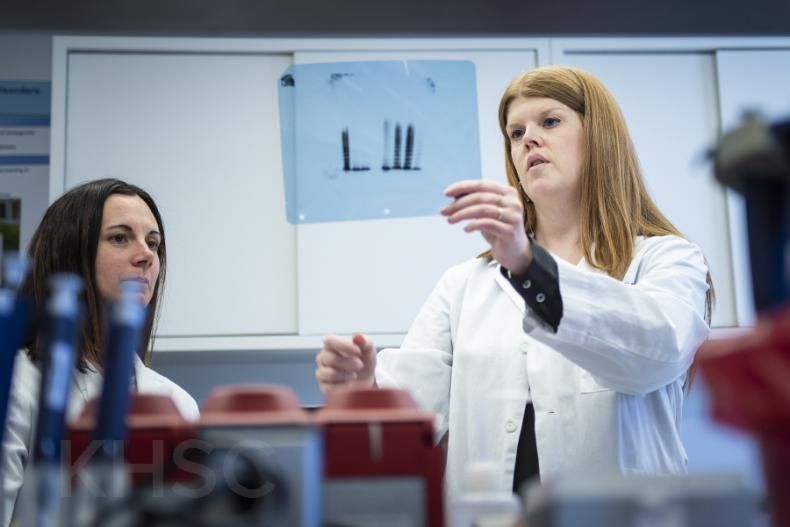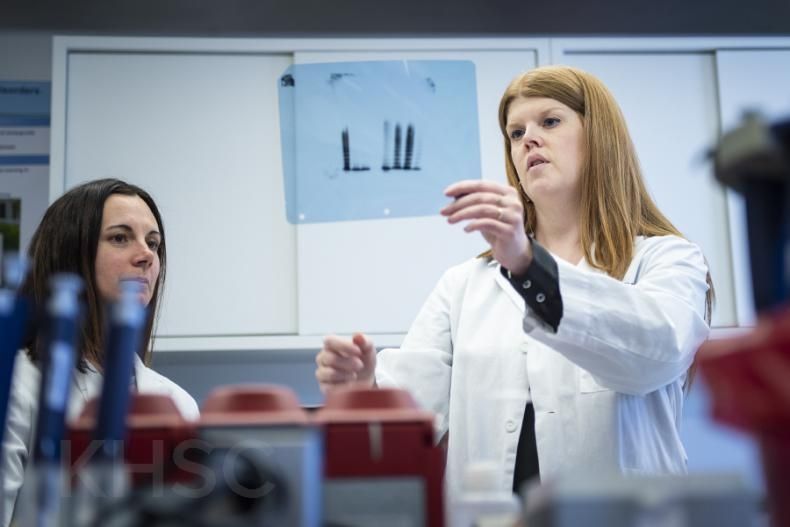Effective immediately masking is required for everyone when present on all inpatient units, in the Emergency Department (ED), the Urgent Care Centre (UCC), and the Children’s Outpatient Centre (COPC).

April 17 is World Hemophilia Day and the Inherited Bleeding Disorders Team at Kingston Health Sciences Centre (KHSC) are promoting the use of an online Bleeding Assessment Tool (BAT) that will help individuals determine if the bleeding they experience is ‘normal’ and will guide the individual towards the help they need.
The tool, found online at LetsTalkPeriod.ca, walks users through a number of questions aimed to determine if the bleeding they are experiencing is abnormal and requires the expertise and support from a hematologist. While the site is primarily focused on individuals who experience menstruation, it can help identify abnormal bleeding for anyone.
“While it’s difficult to define ‘normal’ bleeding, understanding what the difference is between a heavy period and abnormal levels of bleeding can be the difference between suffering in silence and getting the treatment you need,” says Dr. Paula James. “There are many different reasons why a period may be heavy. Sometimes, heavy periods can be a sign of an underlying inherited bleeding disorder or other times, heavy periods can be because of a problem with hormones. This is why it is important to take the Self-BAT and then talk to your family doctor.”
There are many different types of bleeding disorders which the tool can help identify, including von Willebrand Disease (VWD), Hemophilia, and Platelet Function Disorders. While less common than VWD, Hemophilia is also an inherited bleeding disorder which is divided into two main types known as Hemophilia A and Hemophilia B. They are both caused by a deficiency of specific protein in the blood that work with platelets to form blood clots.
“Discovering that you have a bleeding disorder can be alarming – especially if you are unaware of what it entails,” says Dr. James. “But it’s important to know there is help and that you are not alone. After receiving a diagnosis for a bleeding disorder, you may be referred to a hematology clinic in your area. There are 26 Bleeding Disorder clinics across Canada that specialize in caring for individuals with Inherited Bleeding Disorders, including one here at KHSC.”
An individual with a bleeding disorder can often suffer with iron deficiency (low iron levels) or iron deficiency anemia (low iron levels and low hemoglobin levels), which can result in a number of symptoms that include fatigue, weakness lack of energy, shortness of breath and chest pain along with brittle nails and hair loss.
“If you experience any of the symptoms above and have more questions about bleeding, a good place for you to start would be the Self-BAT on our website,” says Dr. James.” You’ll be asked to answer some questions and it will give you a score that indicates if you might have a bleeding disorder or not. The next step would be to make an appointment to share your test score with your doctor.”
“The good news is there are lots of treatment options today for individuals with bleeding disorders that range from oral to injectable medications. You really can experience an improvement in the quality of life if you are able to identify and treat the condition.”
To learn more about Hemophilia, KHSC's Inherited Bleeding Disorders Nurse Coordinator Lisa Thibeault recently participated in a Facebook Live event hosted Reader's Digest Canada and can be viewed here. For more information on Inherited Bleeding Disorders, or to take the Self-BAT visit: www.letstalkperiod.ca
Gallery


Dr. Paula James (R) in her lab (pre-pandemic)



